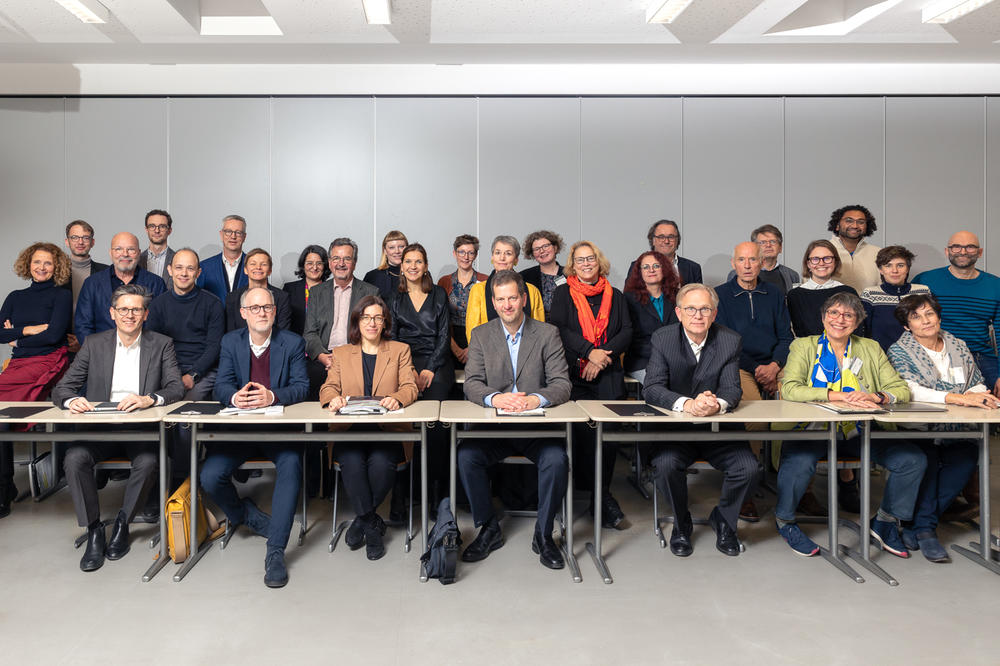Looking Back and Ahead – A Conversation with SCRIPTS
On the occasion of the decision regarding the cluster’s renewal proposal, we reflect—and look ahead—with SCRIPTS’ leading voices: on research achievements, personal insights, and what comes next.
News from May 22, 2025
Interview with Prof. Dr. Tanja Börzel
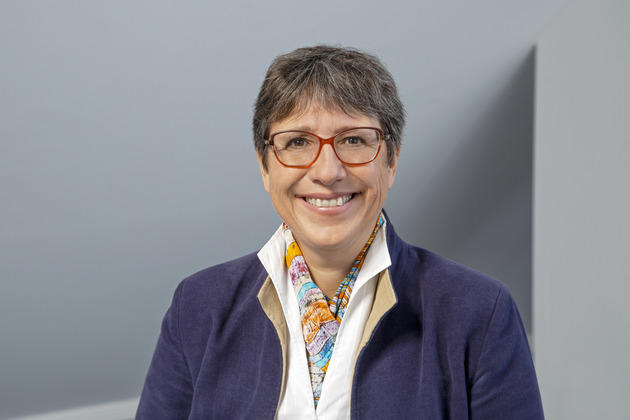
Image Credit: Katy Otto
Professor of Political Science, Director of the Center for European Integration, Freie Universität Berlin SCRIPTS DirectorQuestion: What do you think SCRIPTS has achieved for research?
Tanja Börzel: There are several, and our Latin America regional conference in São Paulo is definitely one of them! Together with our colleagues from São Paulo, we brought together outstanding academics from the region to engage in debates around liberal concepts in Latin America. I was impressed by how deeply they engaged with our ideas while bringing in their own perspectives. These challenging exchanges were sometimes exhausting but also exactly what I expect from SCRIPTS: genuine intellectual enrichment that leads to new insights and knowledge.
Question: What do you think SCRIPTS has achieved for research?
Tanja Börzel: We have introduced the concept of ‘Contestations of Liberal Scripts’ – questions about the causes, processes, and consequences of conflicts over liberal political ideas had not been asked in this way before. We showed how liberal orders can themselves generate increasingly radical and polarising controversies. With our resilience approach, we have identified ways in which liberal societies can respond to these dynamics without undermining liberal institutions and values. It's great to see that several leading academic journals have published special issues based on our work – clear evidence that we haven’t just sparked debate but helped shape a new research agenda.
Question: What has working in the cluster enabled you personally?
Tanja Börzel: Collaborating with researchers from around the world has opened up entirely new perspectives for me. I especially valued working with doctoral and postdoctoral researchers from diverse regions. This exposure to different perspectives has significantly enriched my own research—for example, on academic freedom. Without SCRIPTS, the topic of resilience in liberal democracies might never have become such a central focus for me. The cluster also enabled me to connect my academic work more directly with non-university contexts—both internationally and within Berlin’s civic sphere.
Question: What are you planning for the next funding phase, and what are you particularly looking forward to?
Tanja Börzel: We now want to explore what makes democracies resilient in the face of mounting internal and external pressures. We are planning new research collaborations in Africa and the Indo-Pacific. I'm particularly excited about taking transdisciplinarity further—for example, working with urban planners and artists to create spaces where urban communities can engage with contentious issues despite growing polarisation.
Interview with Prof. Dr. Mark Hallerberg
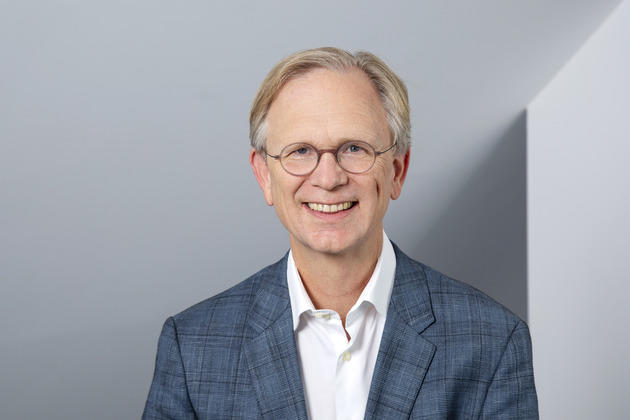
Image Credit: Katy Otto
Professor of Public Management and Political Economy, Hertie School SCRIPTS Co-Deputy DirectorQuestion: What was your personal highlight in SCRIPTS?
Mark Hallerberg: One of my absolute highlights was participating in our regional conferences in Latin America and East Asia. I went in with low expectations - but these events turned out to be incredibly rewarding. We had intense, sometimes surprising exchanges with local scholars that challenged how we thought about our concepts, particularly the liberal script. These on-the-ground interactions fundamentally reminded me how important context is in political science. Without SCRIPTS, I simply wouldn’t have had these experiences.
Question: What has SCRIPTS contributed to the broader scientific community?
Mark Hallerberg: One major contribution is our comparative survey—our “Public Attitude towards the Liberal Script” (PALS) dataset. It spans over 30 countries and addresses issues such as personal freedom, the role of the state, and liberal values during the pandemic. This data is open-access and unique in scope. It offers a resource that not only supports our publications but enables researchers globally to explore contestations of the liberal order empirically and comparatively.
Question: How has SCRIPTS impacted your own work?
Mark Hallerberg: It expanded my perspective—intellectually and institutionally. I’ve long collaborated with international peers, but SCRIPTS brought me into dialogue with scholars from fields I wouldn’t usually engage with—historians, political theorists, legal scholars. These interactions challenged me to rethink the role of markets in liberalism, something I considered central. I now see that many colleagues emphasize personal rights and social justice as equally defining features. That kind of productive disagreement is what research should be about.
Question: What has SCRIPTS changed in Berlin’s research environment?
Mark Hallerberg: It created something that hadn’t existed before: an intellectual community that spans institutions across the city. It’s easy to stay within one’s department or even one’s own university. SCRIPTS forced us—productively—to cross the street, both literally and figuratively. Now I know whom to approach across Berlin when visitors come, or when I want to explore an idea from a different angle.
Question: What are your plans for a second funding phase?
Mark Hallerberg: I’m particularly excited about our evolving work on the relationship between technology and the liberal script—especially how AI and digital platforms shape public discourse, personal freedoms, and state authority. We’ve assembled a fantastic group to study these transformations. Given the global contestations we're witnessing today, this work is not only timely but necessary. If funded, we’re ready to start immediately—and I think we’ll be in a strong position to offer both theoretical insights and real-world relevance.
Interview with Prof. Dr. Michael Zürn
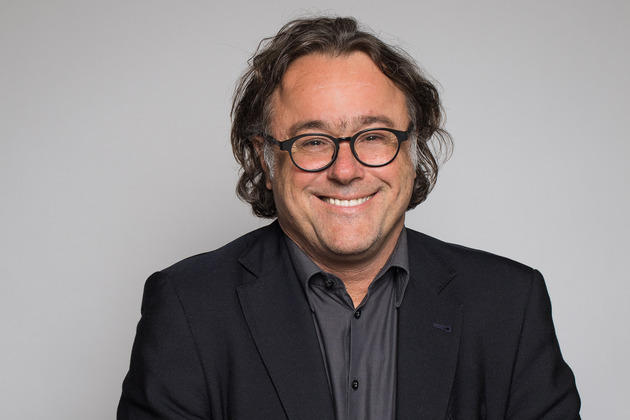
Image Credit: Martin Funck
Professor of International Politics and Law, Freie Universität Berlin Director of the Research Unit Global Governance, WZB BerlinQuestion: What was your personal highlight in the SCRIPTS cluster?
Michael Zürn: One personal highlight was being involved in the Senegal project, which explored how the liberal script is blocked in authoritarian contexts, and how dissatisfaction with governance can be redirected against liberal norms themselves. I also greatly enjoyed the typology project I worked on with four PhD researchers, Stefan Gosepath, and Alex Schmotz. Another particularly rewarding moment was the publication of our Leviathan volume. It gave me the opportunity to experience how the cluster operates from within. Most of the principal investigators contributed, and it was truly inspiring to see how academic diversity can be brought together productively.
Question: What has SCRIPTS achieved for research?
Michael Zürn: For the first time, we have brought together numerous crises and conflict lines – from the war against Ukraine to right-wing populism and affective polarisation – under the conceptual umbrella of the ‘contestation of liberal orders’. This framework has become widely established. Researchers are no longer analysing their case studies in isolation but instead as part of a broader, global process of contestation directed at liberal institutions and values. Several special issues and policy papers already build on our work.
Question: What has your involvement in the Cluster made possible for your own research?
Michael Zürn: I now approach research questions very differently. The intensive discussions with colleagues from the Cluster, as well as with scholars from Canada, Southeast Asia and Latin America, have forced me to constantly scrutinise my own patterns of thought and argumentation. I would estimate that about one third of my current approach can be traced back directly to these experiences. For example, I’ve learned to systematically incorporate postcolonial perspectives into my work.
Without SCRIPTS, I would never have broadened my research agenda at this pace. Previously, I had done far less comparative country work, I hadn’t considered contestation across continents in such detail, and I had little experience with survey data. The structural and financial support from the Cluster made projects possible that simply wouldn’t have been feasible with standard individual funding.
Question: What are you planning for the next funding phase?
Michael Zürn: I plan to continue working on the topic of social epistemology—reconstructing the social norms and mechanisms that define what a society accepts as ‘truth’ and how these norms are strategically employed to advance political agendas. This also applies to the international sphere: in the medium term, I want to analyse how coalition dynamics shift in multilateral institutions and what counter-strategies liberal states can develop in response.
But more than anything, I’m looking forward to meeting my colleagues in person again and generating new ideas together—it’s something that has its own unique energy within SCRIPTS.
Interview with Prof. Dr. Gwendolyn Sasse
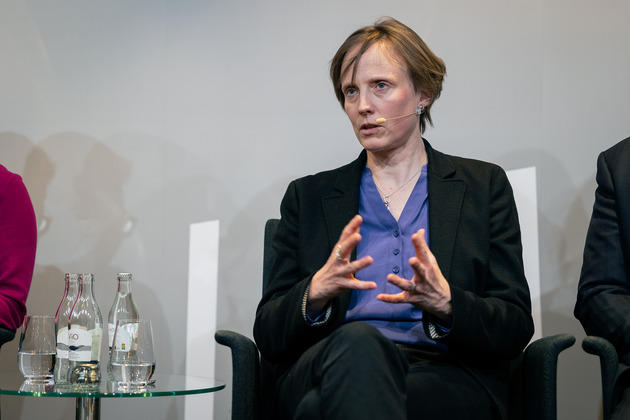
Image Credit: Kevin Fuchs
Director, Centre for East European and International Studies (ZOiS) Head of SCRIPTS' Research Unit "Orders"Question: What was your personal highlight in the SCRIPTS cluster?
Gwendolyn Sasse: There were many exciting moments, but a particular highlight for me was our involvement in the exhibition at the Humboldt Lab in the Humboldt Forum. The concept, the intensive discussions with the curatorial team and the joint reflection on how to make complex scientific topics accessible to the public were a completely new and rewarding experience for me. It not only strengthened exchange across disciplines, but also demonstrated how academic research can have an impact on the public sphere – and how science communication, in turn, deeply affects the researchers involved.
Question: What do you think SCRIPTS has achieved for research?
Gwendolyn Sasse: SCRIPTS has not only produced a large number of empirical studies, but has also created a conceptual framework with the concept of the ‘liberal script’ that is flexible, open and yet analytically precise. The combination of disciplinary, regional and methodological perspectives in particular was key - it resulted in a mosaic that simply would not have been possible without this funding.
Question: What did the work in the cluster bring you personally?
Gwendolyn Sasse: The cluster came at a perfect time for me: I had just moved to Berlin from the UK and was in the process of establishing the Centre for East European and International Studies (ZOiS). SCRIPTS greatly accelerated my integration into the Berlin research landscape and opened doors to many new collaborations. More specifically, the cluster's resources enabled me to react quickly to current developments - such as the Russian invasion of Ukraine in 2022. Without the cluster, I would never have been able to start my projects on flight research so quickly.
Question: What are you planning for the second funding phase?
Gwendolyn Sasse: I want to continue researching the political, societal, and security-related consequences of Russia’s war of aggression – in Ukraine, but also beyond. I’m interested in how war transforms political systems, how societies negotiate cohesion and trauma, and how narratives from authoritarian states like Russia or China resonate abroad, including within democratic societies. I’m also especially looking forward to continuing our collaboration with cultural institutions, ministries, civil society actors, and the media. SCRIPTS has already accomplished a great deal in the area of science communication and knowledge exchange – and I look forward to building on that with all the partners involved.
All interviews were conducted by Boris Nitzsche.

